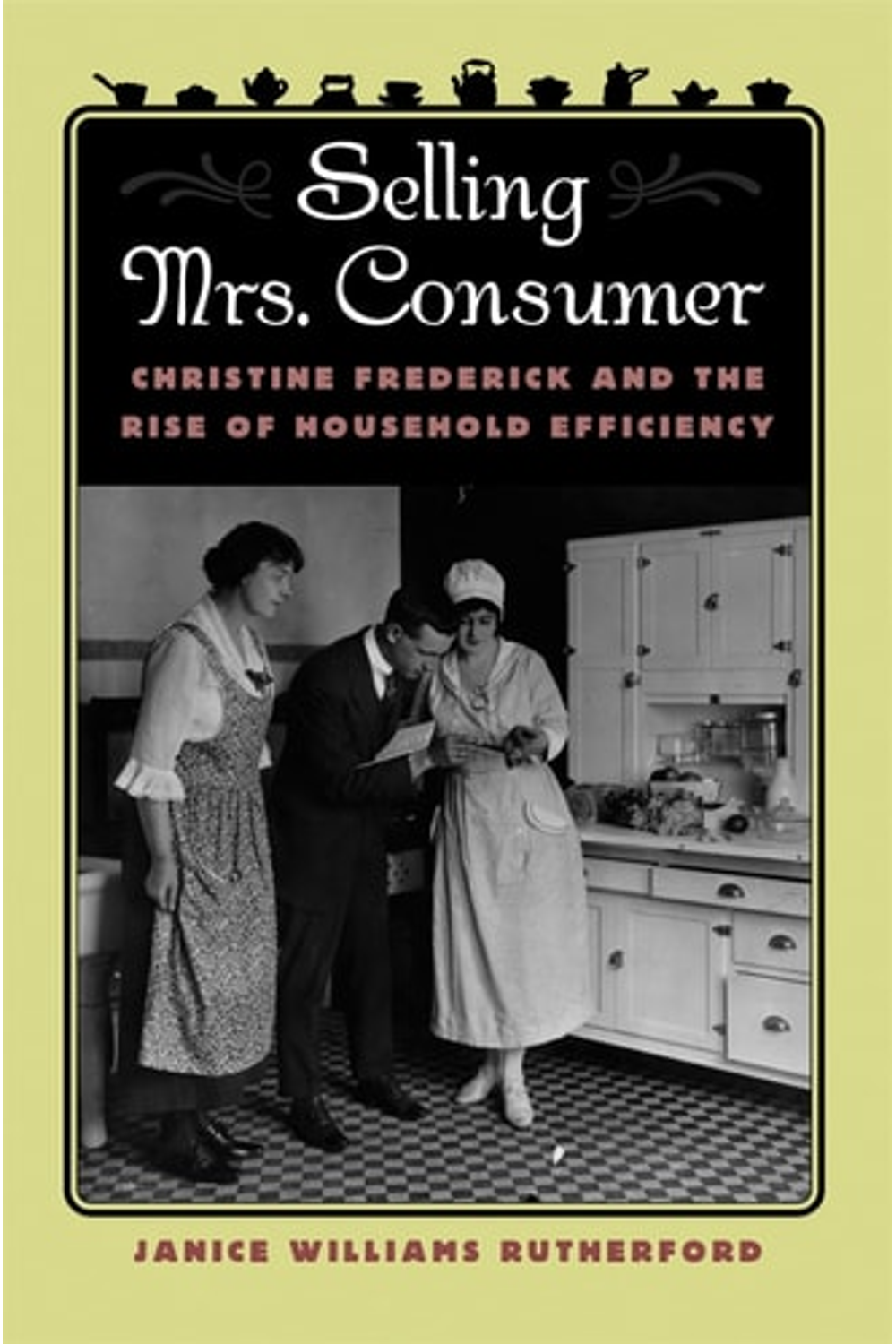**Christine Frederick: The Woman Who Sold Efficiency to America’s Housewives** Discover the untold story of Christine Frederick (1883-1970), a pioneering figure who revolutionized American homemaking in Janice Williams Rutherford’s captivating biography, *Selling Mrs. Consumer: Christine Frederick and the Rise of Household Efficiency*. More than just a home economist, Frederick was a marketing visionary, a champion of consumer rights, and a keen observer of the evolving role of women in the early 20th century. This eye-opening First Edition reveals how Frederick, a college graduate, transformed her own kitchen into a laboratory, applying principles of scientific management to domestic chores. From streamlining laundry routines to optimizing meal preparation, she meticulously analyzed and standardized housework, empowering women to become efficient “household engineers.” Learn how Frederick’s innovations were adopted nationwide through her influential articles in *Ladies’ Home Journal* and her role as a consultant for major advertisers eager to connect with the burgeoning consumer market. Rutherford masterfully portrays Frederick as a complex and often contradictory figure, torn between embracing modern opportunities and upholding traditional values. Explore the ethical dilemmas she faced as she sought to empower women while simultaneously reinforcing their domestic roles. Was she a feminist icon or a perpetuator of gender stereotypes? *Selling Mrs. Consumer* encourages readers to grapple with this question and consider the long-lasting impact of Frederick’s work on American society.
Selling Mrs. Consumer: Christine Frederick and the Rise of Household Efficiency
19,38 $
In stock
This first book-length treatment of the life and work of Christine Frederick (1883-1970) reveals an important dilemma that faced educated women of the early twentieth century. Contrary to her professional role as home efficiency expert, advertising consultant, and consumer advocate, Christine Frederick espoused the nineteenth-century ideal of preserving the virtuous homeand a woman’s place in it. In an effort to reconcile her desire to succeed in the public sphere of modernization and consumerism with the knowledge that most middle-class Americans still held traditional beliefs about gender roles, Frederick fashioned a career for herself that encouraged other women to remain at home.
With the rise of home economics and scientific management, Frederickcollege-educated but confined to the drudgery of houseworkdevised a plan for bringing the public sphere into the domestic. Her home would become her factory. She learned how to standardize tasks by observing labor-saving devices in industry and then applied this knowledge to housework. She standardized dishwashing, for example, by breaking the job into three separate operations: scraping and stacking, washing, and drying and putting away. Determined to train women to become proficient homemakers and efficient managers, Frederick secured a job writing articles for the Ladies’ Home Journal. A professional career as home efficiency expert later expanded to include advertising consultant and consumer advocate. Frederick assured male advertisers that she knew women well and promised to help them sell to “Mrs. Consumer.”
While Frederick sought the power and influence available only to men, she promoted a division of labor by gender and therefore served the fall of the early-twentieth-century wave of feminism. Rutherford’s engaging account of Christine Frederick’s life reflects a dilemma that continues to affect women todaywhether to seek professional gratification or adhere to traditional family values.
| Authors | |
|---|---|
| Binding | |
| Condition | |
| ISBN-10 | 0820324809 |
| ISBN-13 | 9780820324807 |
| Language | |
| Pages | 290 |
| Publisher | |
| Year published | |
| Weight | 441 |
| Edition | First Edition |
| Dewey decimal | 640 |
- Additional information
- Currencies
- USD – United States dollar
- EUR – Euro
- GBP – Pound sterling
- CNY – Chinese yuan
- BRL – Brazilian real
- MXN – Mexican peso
- JPY – Japanese yen
- PHP – Philippine peso
- THB – Thai baht
- PLN – Polish złoty
- CAD – Canadian dollar
- MYR – Malaysian ringgit
- AUD – Australian dollar
- TWD – New Taiwan dollar
- CZK – Czech koruna
- SEK – Swedish krona
- HUF – Hungarian forint
- ILS – Israeli new shekel
- CHF – Swiss franc
- HKD – Hong Kong dollar
- DKK – Danish krone
- SGD – Singapore dollar
- NOK – Norwegian krone
- NZD – New Zealand dollar





